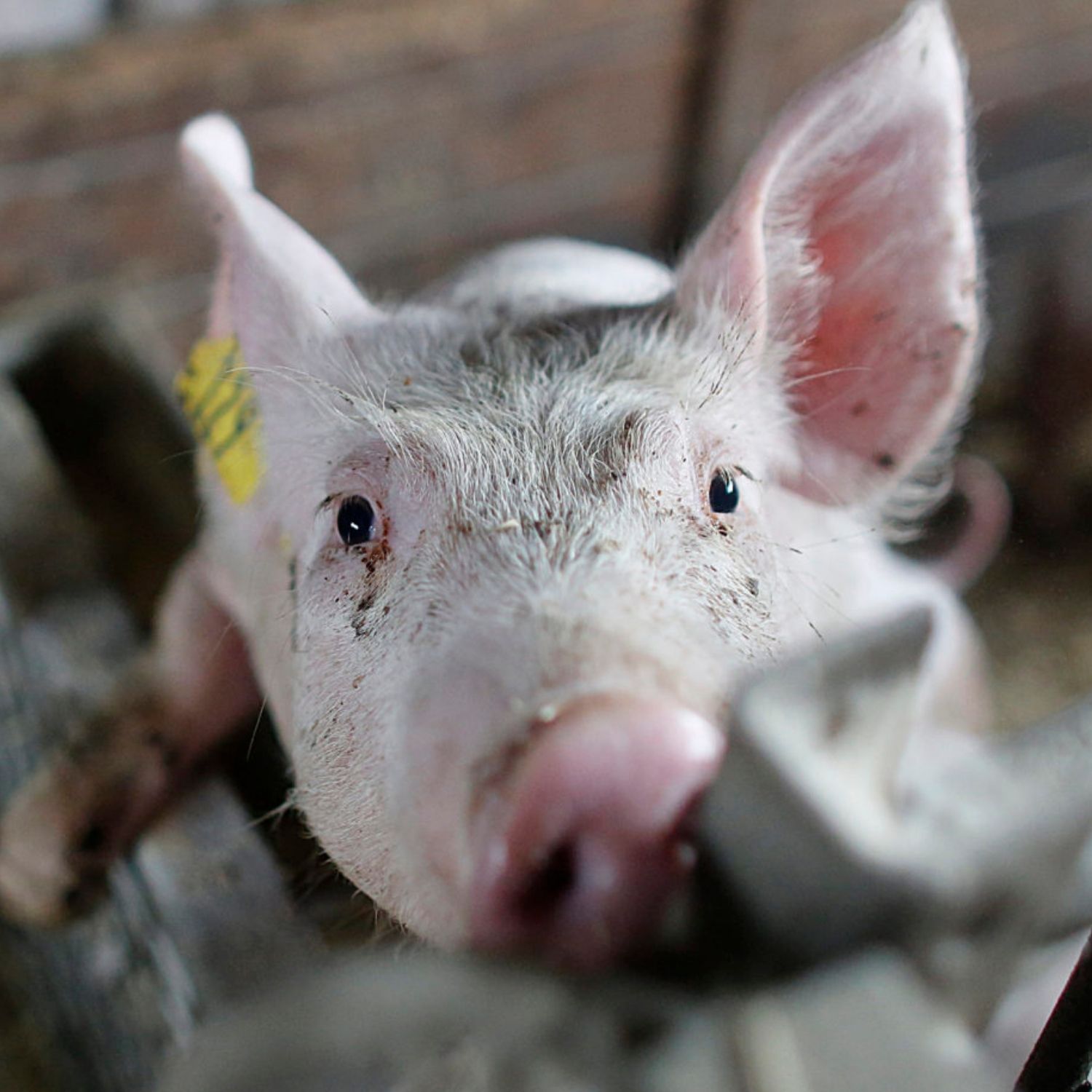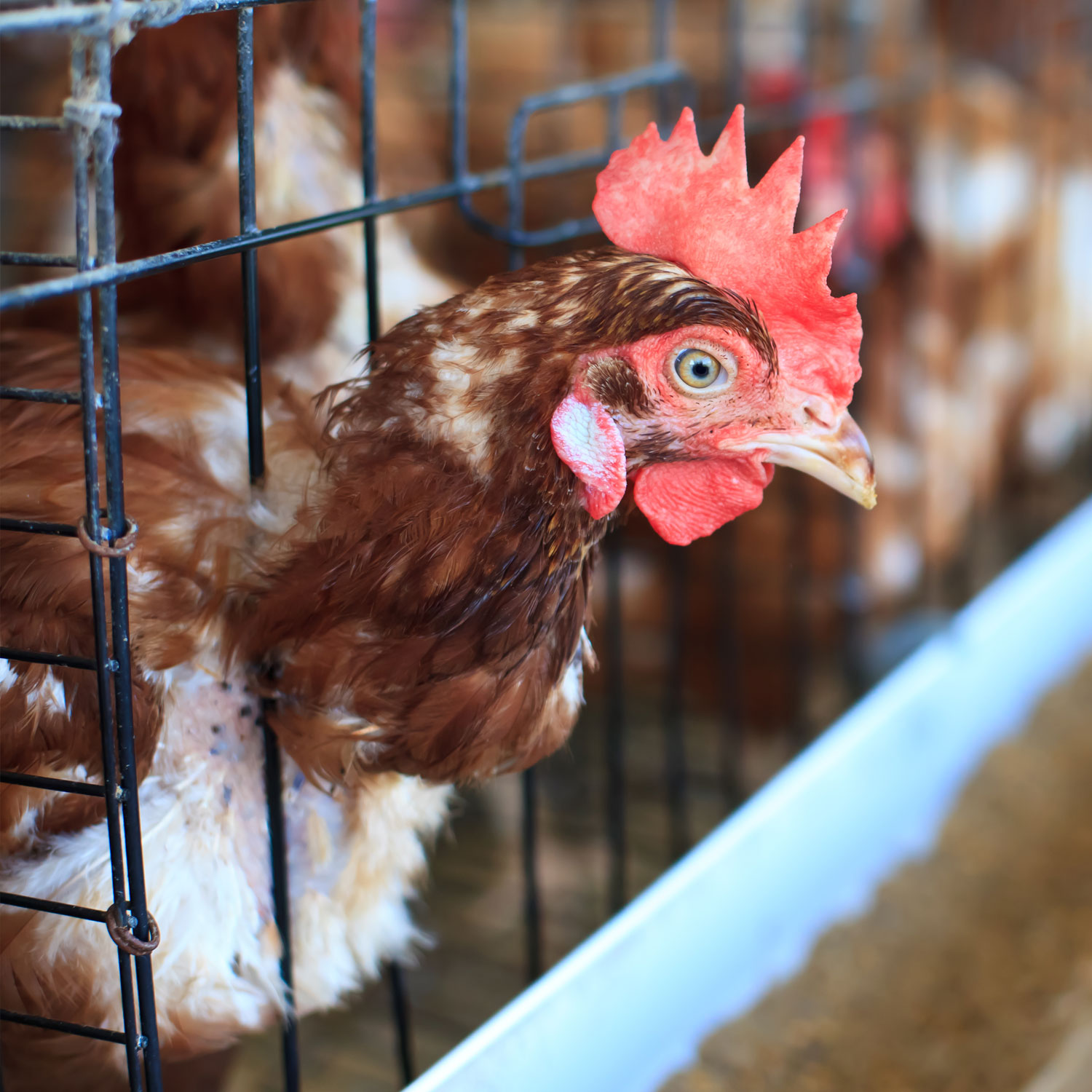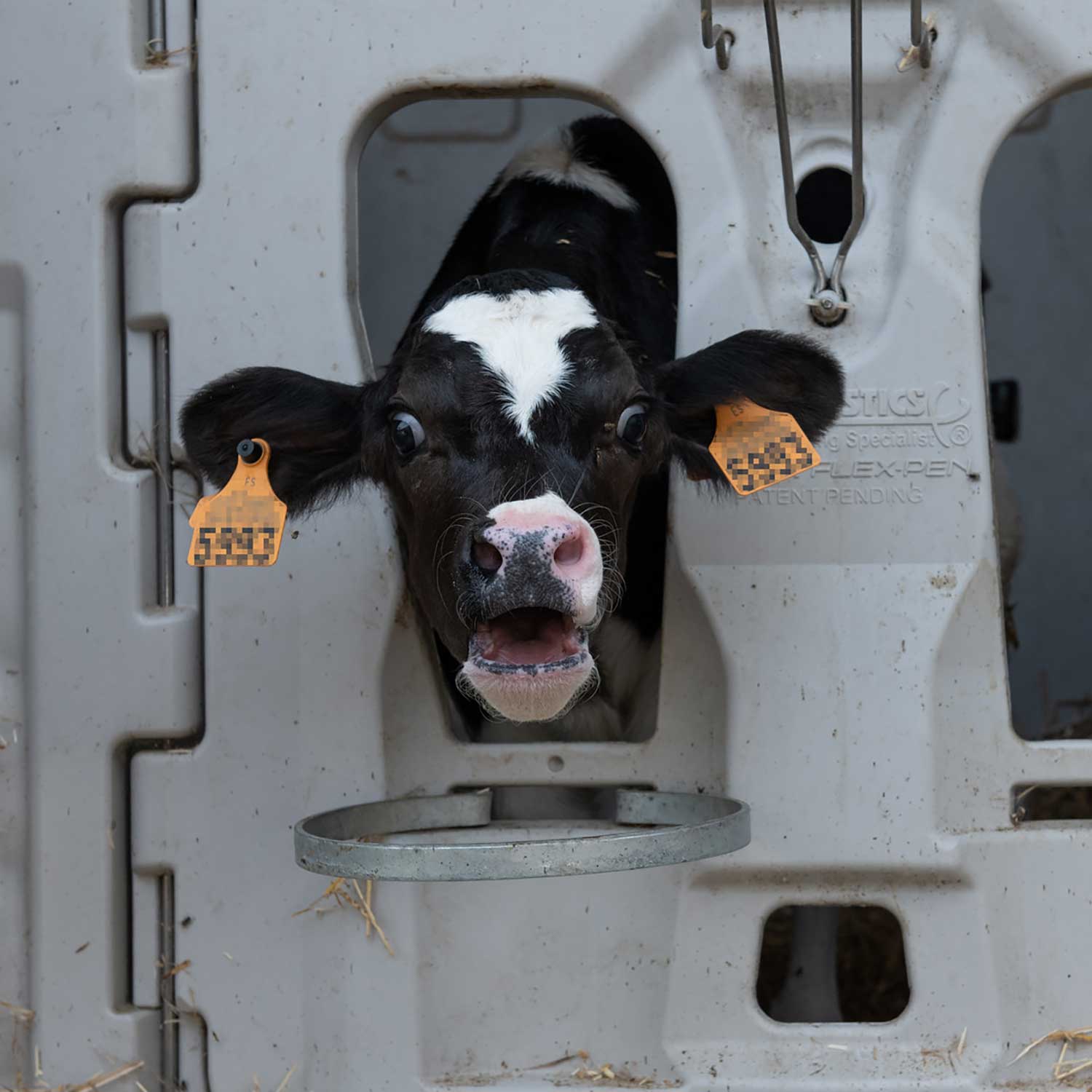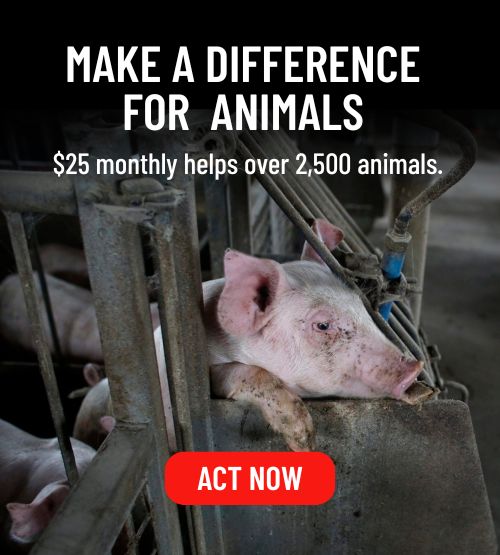Investigation at Simmons Farm Raised Catfish slaughterhouse documents cruelty to animals
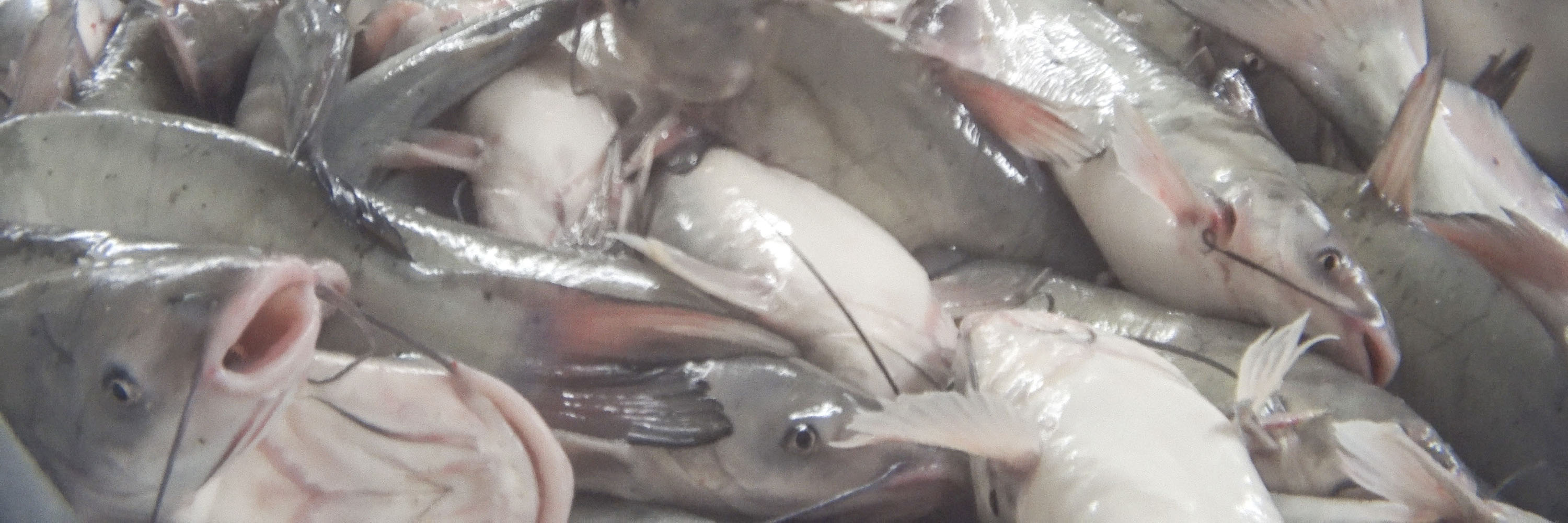
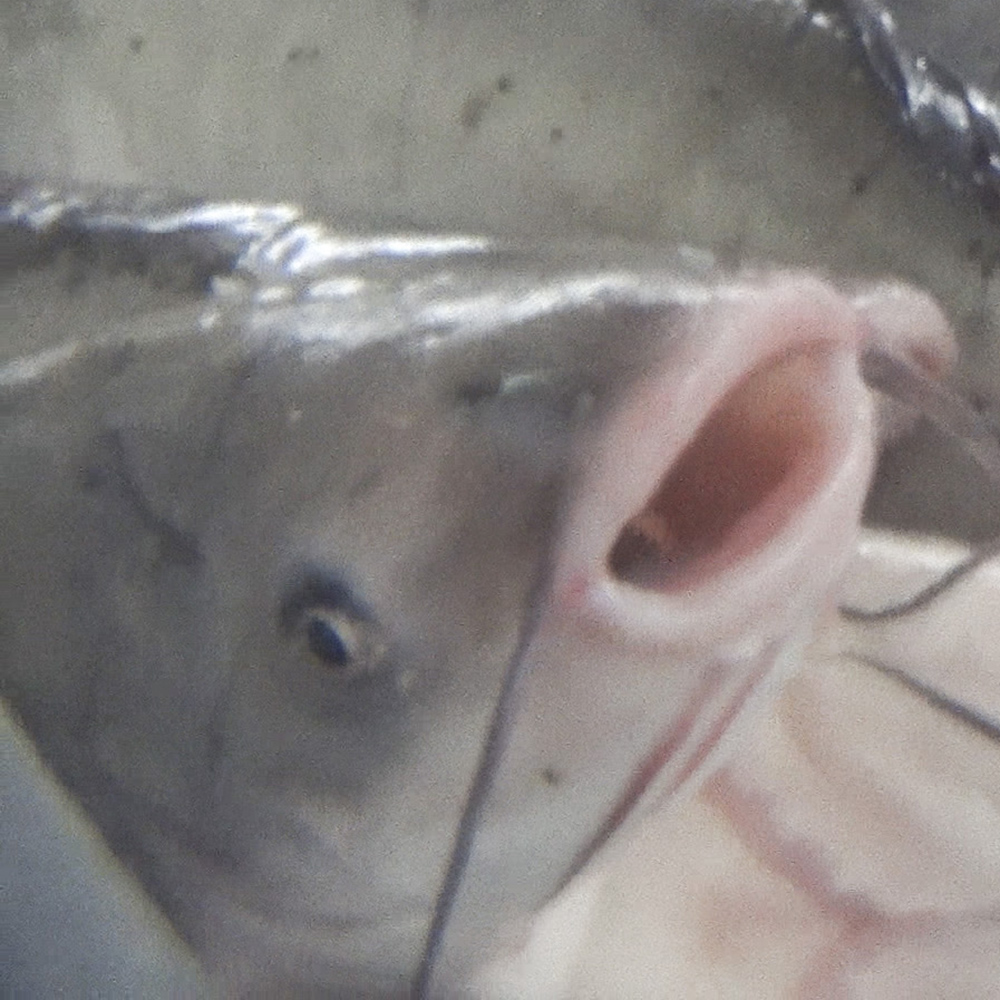
Animal Equality is releasing disturbing scenes of animal suffering filmed at a Simmons Farm Raised Catfish slaughterhouse located in Yazoo City, Mississippi. Simmons, which kills 21,000 fish catfish per day (animals who are raised in the company’s intensive confinement ponds), is one of the largest USDA inspected catfish slaughterhouses in the U.S. The fish slaughtered by the company go to national restaurant chains Cracker Barrel and Captain D’s, as well as grocery stores Kroger, Save A Lot, and Piggly Wiggly.
The investigation revealed fish kept out of water for prolonged periods—up to an hour—before they were finally beheaded. While fish pass through an electrical stunning device during processing, many regain mobility and begin gasping and moving their fins long before they are finally decapitated. Rejected catfish, mudfish, and turtles were removed from production lines and placed in buckets without water. Later they are placed onto a conveyor and transported to a macerator where they were ground up alive.
Our investigator filmed disturbing scenes, including serious legal violations. Hidden-camera footage and eyewitness statements reveal:
- Hundreds of catfish regularly left out of water to slowly suffocate while workers went on breaks
- Conscious fish beheaded
- Turtles and rejected bycatch fish placed in buckets to be later ground up alive and, according to one employee, used as feed for Simmons’ still-growing catfish
- A turtle thrown onto a moving conveyor carrying severed catfish heads and then desperately trying to crawl in the opposite direction as they were carried towards the macerator
- Undersized, deformed, and parasite-scarred fish left alive in bins without water on the slaughter floor for hours
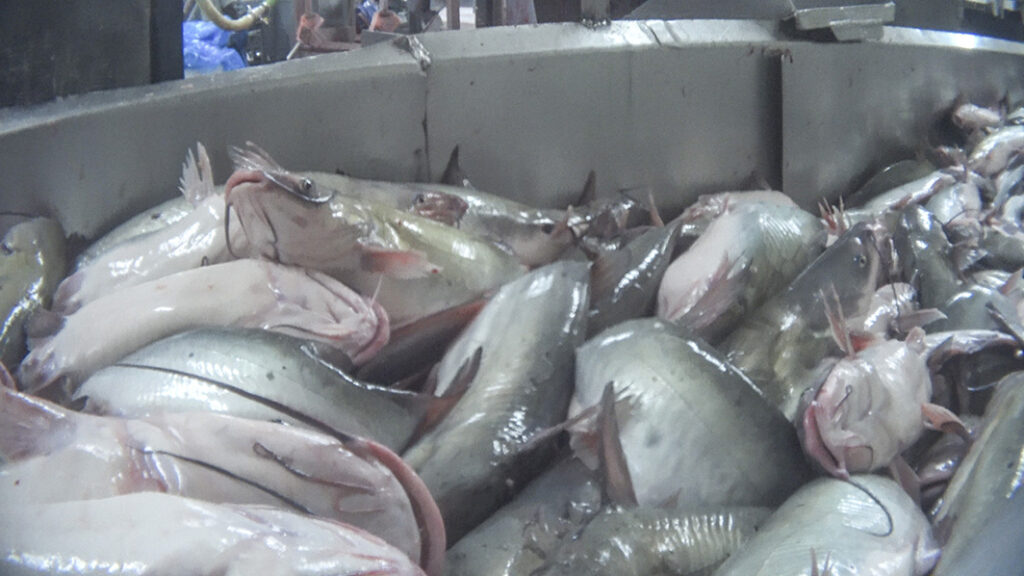
“Every day at Simmons’ slaughterhouse, thousands of catfish suffer,” said Sharon Núñez, President of Animal Equality. “Our investigation revealed persistent violations of Mississippi state law. Charges must be brought against Simmons to stop the ongoing abuse.”
Animal Equality submitted evidence to the Yazoo County Sheriff’s Office and County Prosecutor, detailing violations of Mississippi’s animal cruelty laws documented during the month-long investigation, including severe violations of the statutory prohibition on needless mutilations and cruel manners of “carrying” or “conveyance,” such as upon the conveyor equipment.
Mississippi law states that any person who is responsible for the care and handling of “living creatures,” including fish, may not cause those animals to be tortured or tormented, nor deprived of necessary sustenance (such as oxygen), whether by reason of intentional cruelty or mere neglectfulness. In causing hundreds of fish each day to be subjected to such treatment, Animal Equality maintains that Simmons management and owners should be held criminally liable under Mississippi anti-cruelty law.
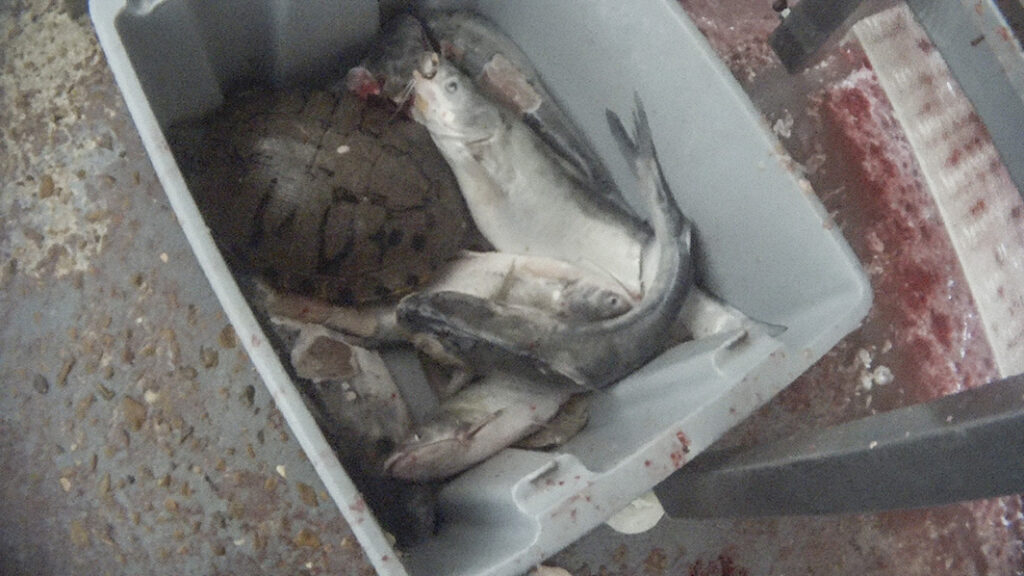
Contrary to the investigator’s findings, Simmons claimed the fish are processed “within 30 minutes” and in a “swift [and] sterile” manner. Animal Equality filed complaints with state attorneys general in Alabama, Georgia, Louisiana, Mississippi, and Tennessee, alleging that Simmons’s false and misleading claims about its products and production practices constitute unfair or deceptive trade practices under those states’ consumer protection laws. In response, Simmons agreed to remove from its website the claim that the fish are processed “within 30 minutes.”
Animal Equality has filed complaints with state attorneys general in Alabama, Georgia, Louisiana, Mississippi, and Tennessee, alleging that Simmons’s false and misleading claims about its products and production practices constitute unfair or deceptive trade practices under those states’ consumer protection laws.
After slaughter, the dead catfish are inspected by the USDA and then go on to supply restaurants, grocery stores, and foodservice companies. Although Simmons’ products bear the federal agency’s official seal, there is no federal law mandating the humane slaughter of fish, so USDA inspectors do not monitor for animal cruelty.
Definitive scientific evidence details the ability and scope of fishes’ ability to experience pain and distress and, in particular, the difficulty of rendering them insensible during slaughter. A study published last year on the effects of commercial stunning methods on the brain function of catfish reviewed the ineffectiveness of electrical stunning. The study determined that catfish regain sensibility from a two-second stun within 30 seconds, and recover from a 10-second stun after 1.7 to 4.9 minutes. When catfish, like those at Simmons, are allowed to recover from the stun, they experience avoidable fear, anxiety, pain, suffering, and distress during their deaths.
In addition to requesting that charges be filed against Simmons for animal cruelty violations, we are also asking for federal legislation that would protect fish under the Humane Methods of Slaughter Act, as aquatic animals are currently excluded from the Act’s protections. To that end, we have created a petition asking Congress to act. Please, let your voice be heard on behalf of these animals and add your names to those asking our representatives to prevent fish from being killed while still fully conscious. You can also make a difference for fish by sharing this investigation and leaving them off your plate.

